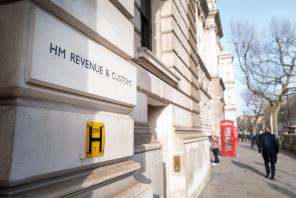

HM Revenue & Customs has confirmed it is currently investigating 153 suspected ‘enablers of tax evasion’ including unregulated tax advisers.
According to law firm RPC, cracking down on ‘enablers of tax evasion’ has been a key area of focus for HMRC since it established its Fraud Investigation Service in 2015.
It said HMRC's fraud investigation service has been given additional resources to recruit more staff and as a result, the number of investigations into tax fraud enablers is likely to increase.
A HMRC spokesperson told FTAdviser: “We are increasingly looking to tackle those professionals who help facilitate tax crime, with around 150 such enablers under criminal investigation.”
It explained the Corporate Criminal Offence, introduced in 2017, made it a criminal offence for an organisation to fail to prevent someone acting on their behalf from criminally facilitating tax evasion.
“We’re already seeing organisations put in place preventive procedures to limit the opportunity for criminal facilitation to take place which is really what we want to see,” the spokesperson said.
“We work closely with our international partners, including the Joint Chiefs of Global Tax Enforcement (J5), to investigate sophisticated international enablers of tax evasion and their intermediaries who facilitate taxpayers to hide their income and assets.”
RPC said the definition of ‘enabler’ was wide and included wealth managers or technology companies that provide software which could potentially be used to distort profits, enabling businesses to evade tax.
Enablers fall under two categories: those who are knowingly complicit in criminal activity and those who may not be aware of their client’s involvement in criminal activity but have failed to carry out proper risk assessment checks.
HMRC said it could not confirm how many, if any, of those being investigated are financial advisers.
RPC warned professionals cannot rely on traditional financial crime controls and must continue to monitor and ‘refresh’ their risk assessments on a regular basis.
Adam Craggs, head of tax disputes and partner at RPC, said: “HMRC is determined to clamp down hard on anyone who aids in tax crimes, not just the perpetrator themselves.
“The Revenue has been effective in identifying traditional tax evasion, with the result that would-be evaders are becoming more sophisticated and are increasingly turning to third parties to assist them.”
Michelle Sloane, partner at RPC, added: “HMRC has broadened its focus considerably and is now coming after a wide range of enablers who it considers are complicit in tax evasion.
“This includes software developers and even those who operate storage facilities that could be used to hide high-value goods. If you are in any way assisting clients evade tax, HMRC may use its criminal powers against you.”
Avoidance
Alongside its work on evasion, in this year's Budget, chancellor Rishi Sunak also announced the government’s renewed focus on tax avoidance by pushing ahead with a consultation that aims to clamp down on promoters of these schemes.
He said the tax office would be consulting on several measures that will allow HMRC to protect its position and minimise the tax gap.
In December 2020, FTAdviser reported on the increased pressure on the government to crack down on promoters of tax avoidance.
sonia.rach@ft.com
What do you think about the issues raised by this story? Email us on FTAletters@ft.com to let us know



